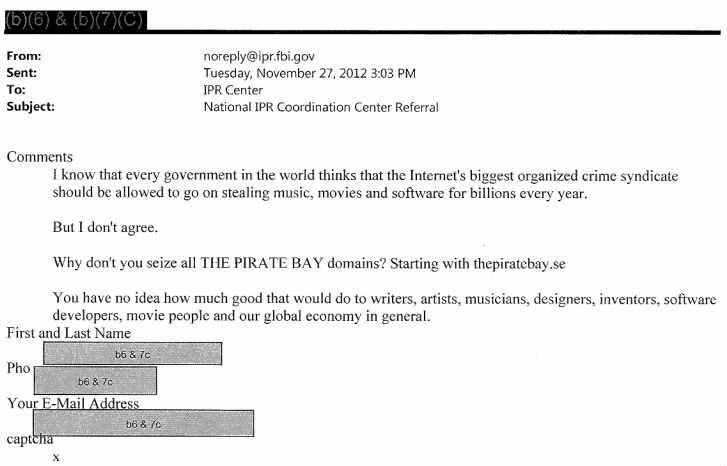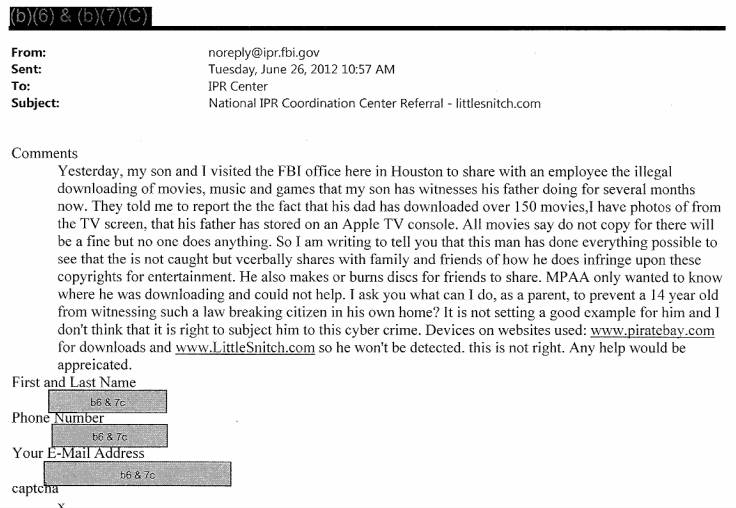TorrentFreak Email Update |
- Russia’s Anti-Piracy Law One Year On: 12 Sites Blocked
- Lionsgate Sues File-Sharing Sites Over Expendables 3 Leak
- Feds Receive Requests to Shut Down The Pirate Bay
| Russia’s Anti-Piracy Law One Year On: 12 Sites Blocked Posted: 02 Aug 2014 03:56 AM PDT
The key strength of the legislation is that provides a mechanism for sites to be blocked should they not comply with rightsholder takedown requests within 72 hours. This element of the framework caused widespread fear and speculation. Would thousands of sites, some carrying legitimate content, find themselves censored at the hands of over-broad legislation tipped heavily in favor of “corporate interests”? Frankly, no. Concern that rightsholders would stampede to court to quickly wipe out as many sites as possible proved unfounded. Out of 19 complaints filed in the first three weeks of the law, just 11 were correctly presented and processed. Torrent site Rutor.org was one of the earliest casualties. After five months in action, rightsholders had filed around 75 official complaints. In 30 cases the targeted sites complied with official removal orders and in 19 others a decision was taken by the authorities to block offending URLs. Then, just six months later, Minister of Communications Nikolai Nikiforov announced that the law was having the required effect. "The law has actually brought us serious results," he said. "We found that [the law's introduction] resulted in an increase of 30% in the number of people who pay for legal content. This is a major achievement. Our country plans to increase the number of consumers of legal content on the Internet to 30 million people by 2018." Critics remain doubtful of the dramatic turnaround and throughout the year there has been little downturn in the number of rightsholders complaining about piracy. Yesterday marked the one year anniversary of the new law’s introduction and it’s fair to say there were no festivities. According to figures obtained by Izvestia from telecoms watchdog Roscomnadzor, during the past year the Moscow City Court imposed preliminary interim measures against 175 sites following copyright complaints. The Court went on to block a total of 12 file-sharing related domains, most of them BitTorrent trackers. This number is far below the numbers predicted one year ago. Perhaps unsurprisingly a far greater number of IP addresses were eventually blocked, 99 in total. “This is due to the fact that the sites tried to avoid blocking by migrating to other IP-addresses that Roscomnadzor also monitors and places on the registry,” a spokesman said. But despite all the complaints and blocking, pirated content is still easy to find, a key issue that doesn’t appear to be going away anytime soon. Nevertheless, the watchdog says that things are improving. “If you want to find illegal content on the web, you still can today. But rightsholders now have the opportunity to make an impact on legal grounds, which is most critical for them in terms of the spread of pirated content. They are also beginning to unite to close pirated resources for longer,” the spokesman said. Furthermore, fears expressed by search engines that the law would negatively impact the web have not come to pass. “As for the dissatisfaction shown by Internet companies following the entry into force of the law, neither Google, Mail.ru, or Yandex has suffered from it. Many areas, where earlier there was illegal content, are now beginning to build into legitimate businesses.” But despite positivity from the watchdog, critics remain. “If you want to download any movie and can spend five minutes and still download it, then the law has brought no benefits,” Wikimedia executive director Stanislav Kozlovsky told Izvestia. “Also remaining are the problems caused by the very principle of blocking IP-addresses. If a pirate site is suddenly blocked, it costs nothing to move to a different address. This problem is solved in just a day.” Only time will tell if Russia’s legislative moves will pay off in the end, but if the first 12 months are anything to go by, they will have to wait considerably longer yet. Source: TorrentFreak, for the latest info on copyright, file-sharing and anonymous VPN services. |
| Lionsgate Sues File-Sharing Sites Over Expendables 3 Leak Posted: 01 Aug 2014 02:40 PM PDT
Scheduled for an August 15 U.S. release, Expendables 3 leaked in near DVD quality a full two weeks ahead. The timing and quality combined to make the leak one of the most prominent in recent years. The movie studios behind the film have been rather quiet, but behind the scenes they have been trying hard to limit the damage. Lionsgate in particular sent takedown requests to numerous file-sharing sites. While most sites complied by taking down infringing links or copies, some failed to respond. In response to this apparent lack of cooperation, Lionsgate has now sued the operators of six file-sharing sites – Limetorrents.com, Billionuploads.com, Hulkfile.eu, Played.to, Swankshare.com and Dotsemper.com. The complaint (copy below) filed at a federal court in California accuses the sites’ owners of direct, contributory and vicarious copyright infringement. Limetorrents is the only torrent site in the lawsuit, and Lionsgate notes that the Expendables leak was still prominently available on the site when the complaint was drafted. “To date, the operator(s) of the site have not responded to Lions Gate's demands. Rather, as of the date of this filing links to the torrents allow users to access ‘swarms’ where the Stolen Film is being shared remain on the site, including in the fifth-ranked position for ‘Movie torrents’ on the site's home page,” the lawyers write. In the complaint, first reported by THR, the movie studio demands a wide range of measures. Lionsgate asks the court for a temporary restraining order, a preliminary injunction and a permanent injunction to stop the sites from further distributing the film. This includes a request to suspend the sites’ domain names, or transfer them to Lionsgate. In addition, the movie studio also wants all financial institutions who do business with the sites to freeze their assets. If granted, Lionsgate could severely damage the sites in question even if the operators remain silent. Finally, the movie company demands actual or statutory damages for the financial loss it has suffered. Since there is only one film at stake, the statutory damages are limited to $150,000 per site. At this point it is unknown whether Lionsgate is also investigating the source of the leak, which isn’t related to any of the sites listed in the complaint. A third option would be to go after individual filesharers, which Nu Image did when they sued 23,322 alleged pirates who shared the first Expendables movies. Thus far well over two million copies of The Expendables 3 have been shared via BitTorrent, so there are plenty of targets for sure. Source: TorrentFreak, for the latest info on copyright, file-sharing and anonymous VPN services. |
| Feds Receive Requests to Shut Down The Pirate Bay Posted: 01 Aug 2014 10:27 AM PDT
So, when a Pirate Bay-related Freedom of Information request was sent to Homeland Security’s National Intellectual Property Rights Coordination Center, we expected to see letters from the major music labels and Hollywood studios. Interestingly that was not the case. Late June Polity News asked Homeland Security to reveal all information the center holds on the notorious torrent site. Earlier this week the responses were received, mostly consisting of requests from individuals to shut down The Pirate Bay. In total the center received 15 emails, and all appear to have been forwarded by the FBI, where they were apparently first sent. Some of the emails only list a few pirate site domains but others are more specific in calling for strong action against The Pirate Bay. “Why don’t you seize all THE PIRATE BAY domains? Starting with thepiratebay.se. You have no idea how much good that would do to writers, artists, musicians, designers, inventors, software developers, movie people and our global economy in general,” one email reads.  The emails are all redacted but the content of the requests sometimes reveals who the sender might be. The example below comes from the author of “The Crystal Warrior,” which is probably the New Zealand author Maree Anderson. “The Pirate Bay states that it can’t be held responsible for copyright infringement as it is a torrent site and doesn’t store the files on its servers. However the epub file of my published novel The Crystal Warrior has been illegally uploaded there,” the email reads. The author adds that she takes a strong stand against piracy, but that her takedown notices are ignored by The Pirate Bay. She hopes that the authorities can take more effective action. “Perhaps you would have more luck in putting pressure on them than one individual like myself. And if you are unable to take further action, I hope this notification will put The Pirate Bay in your sights so you can keep an eye on them,” the author adds.  Most of the other requests include similar calls to action and appear to come from individual copyright holders. However, there is also a slightly more unusual request. The email in question comes from the mother of a 14-year-old boy whose father is said to frequently pirate movies and music. The mother says she already visited an FBI office to report the man and is now seeking further advice. Apparently she previously reached out to the MPAA, but they weren’t particularly helpful. “MPAA only wanted to know where he was downloading and could not help. I ask you what can I do, as a parent, to prevent a 14-year-old from witnessing such a law breaking citizen in his own home?” the mother writes. “It is not setting a good example for him and I don't think that it is right to subject him to this cyber crime. Devices on websites used: www.piratebay.com for downloads and www.LittleSnitch.com so he won't be detected. This is not right. Any help would be appreciated," she adds.  All of the revealed requests were sent between 2012 and 2014. Thus far, however, the Department of Homeland Security nor the FBI have taken any action against the Pirate Bay. Whether the pirating dad is still on the loose remains unknown for now, but chances are he’s still sharing music and movies despite the FBI referral. Source: TorrentFreak, for the latest info on copyright, file-sharing and anonymous VPN services. |
| You are subscribed to email updates from TorrentFreak To stop receiving these emails, you may unsubscribe now. | Email delivery powered by Google |
| Google Inc., 20 West Kinzie, Chicago IL USA 60610 | |


